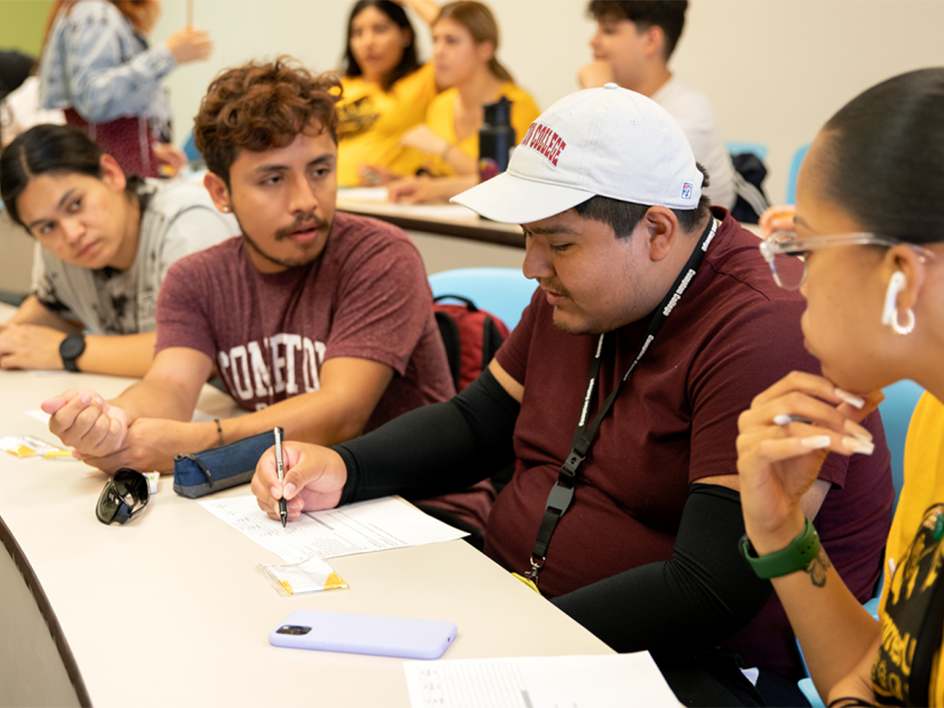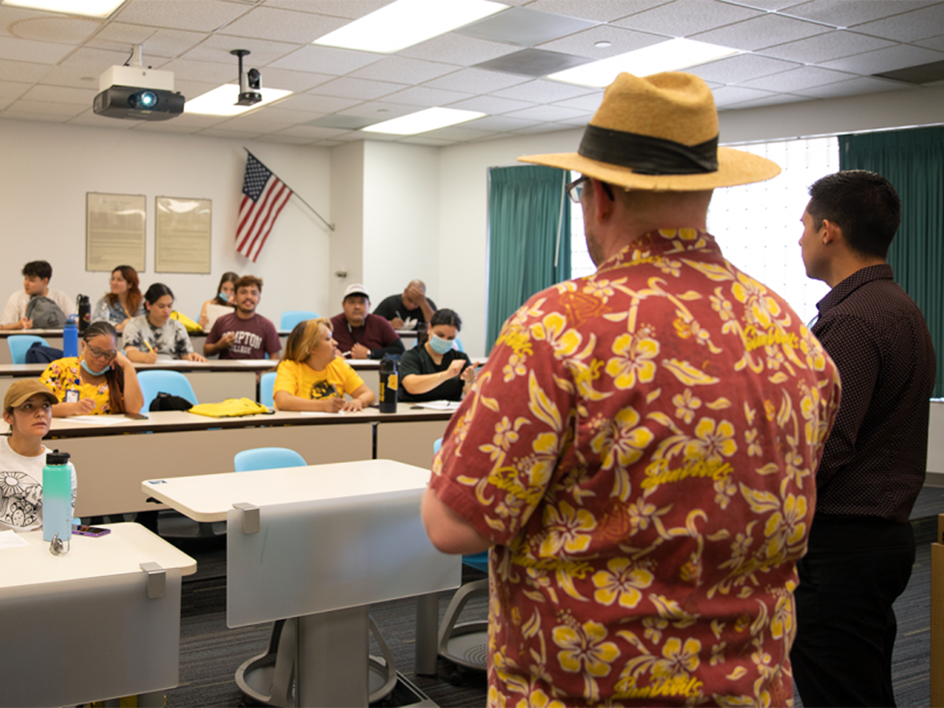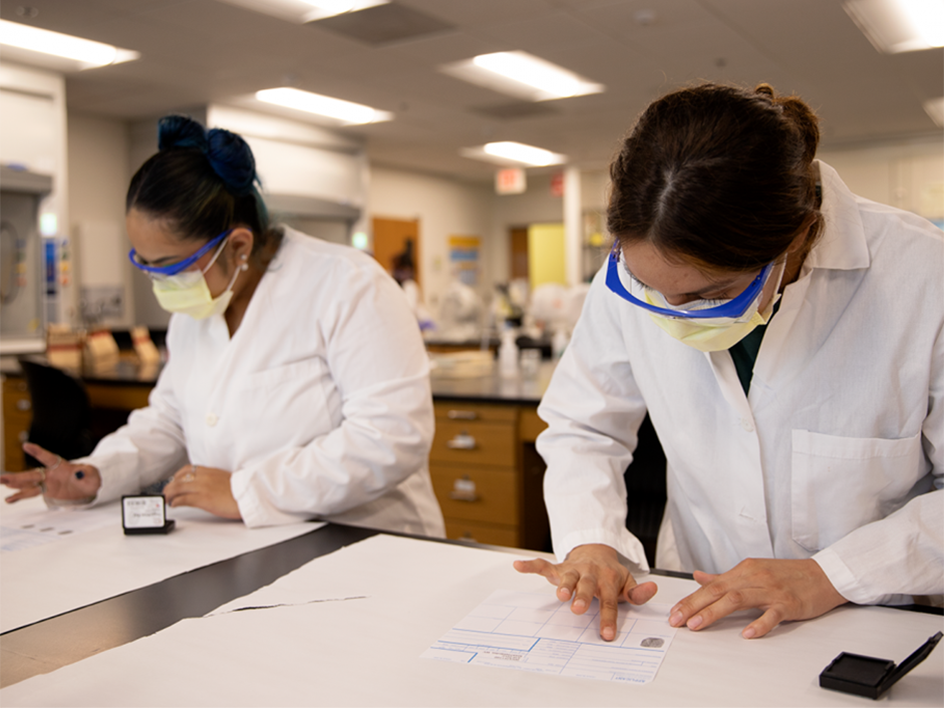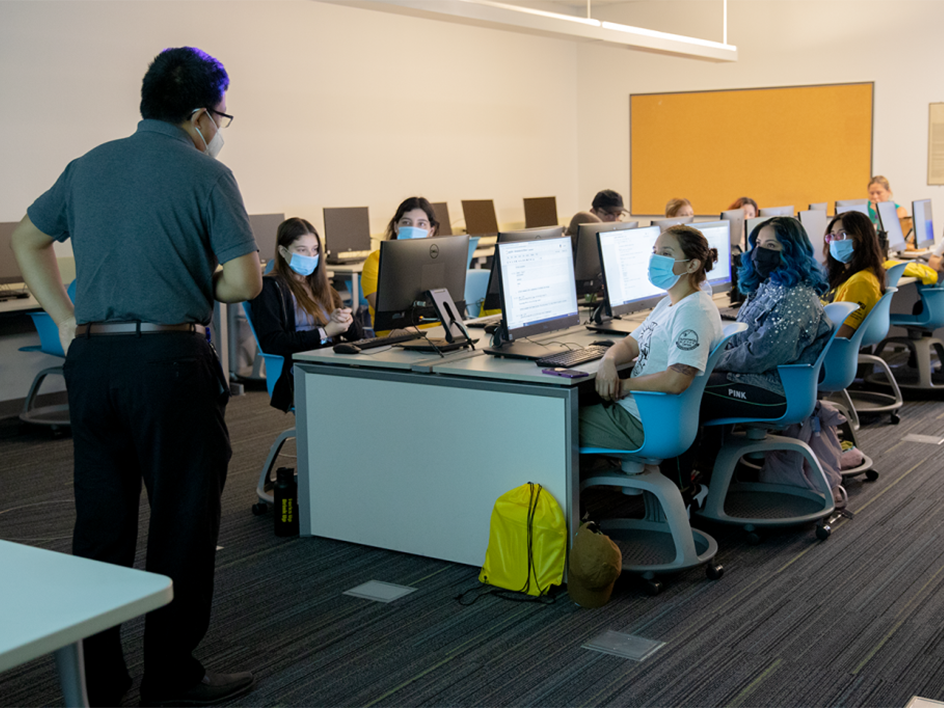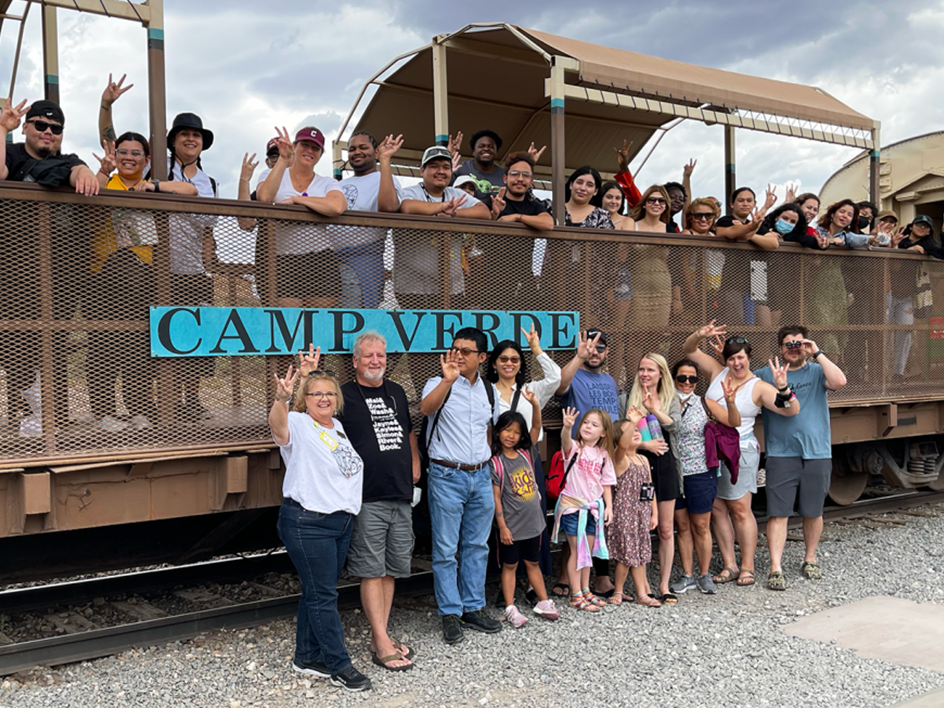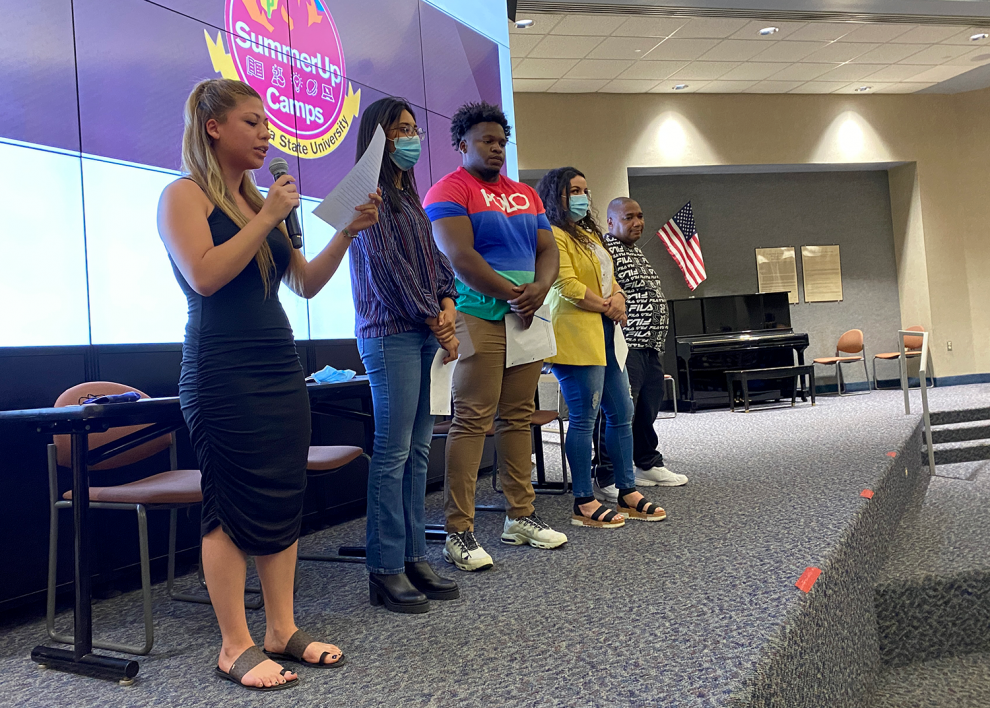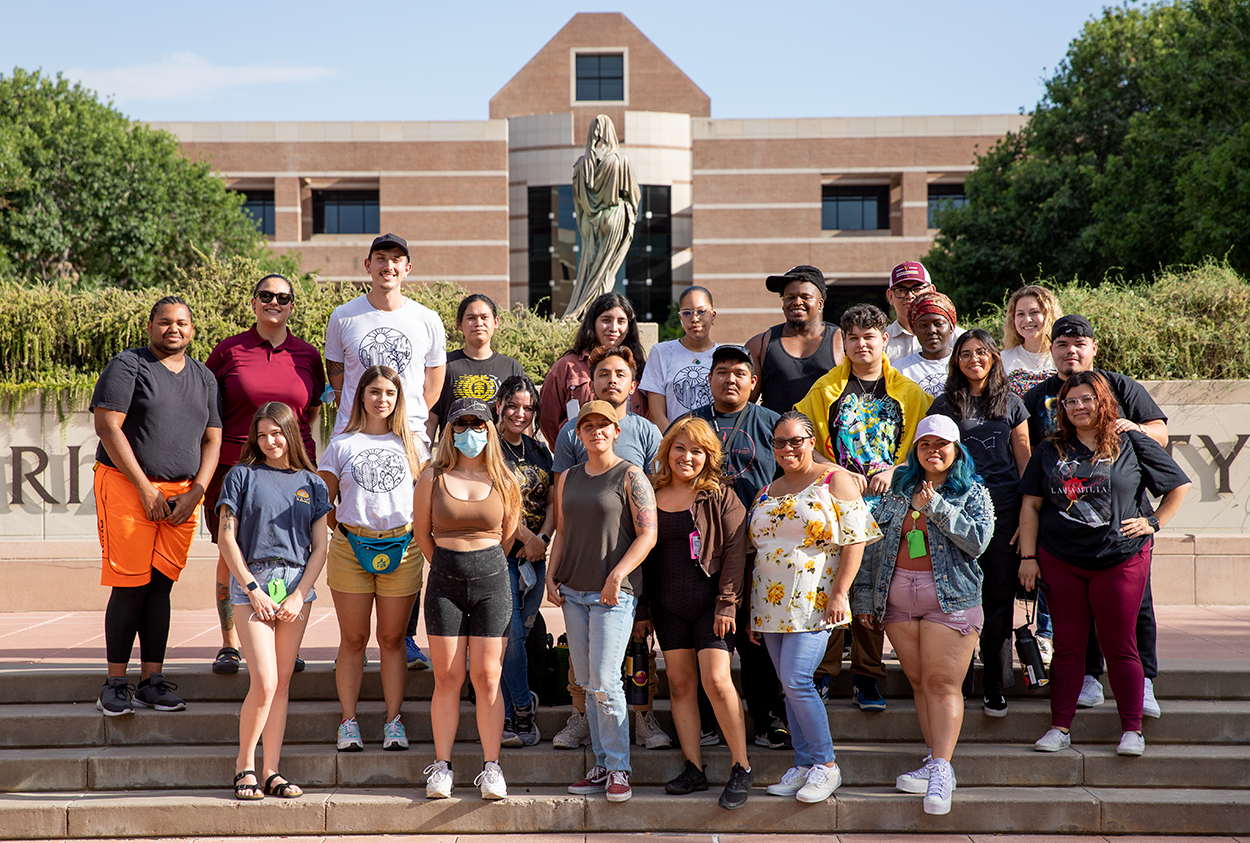ASU New College hosts Compton College students at STEM summer camp
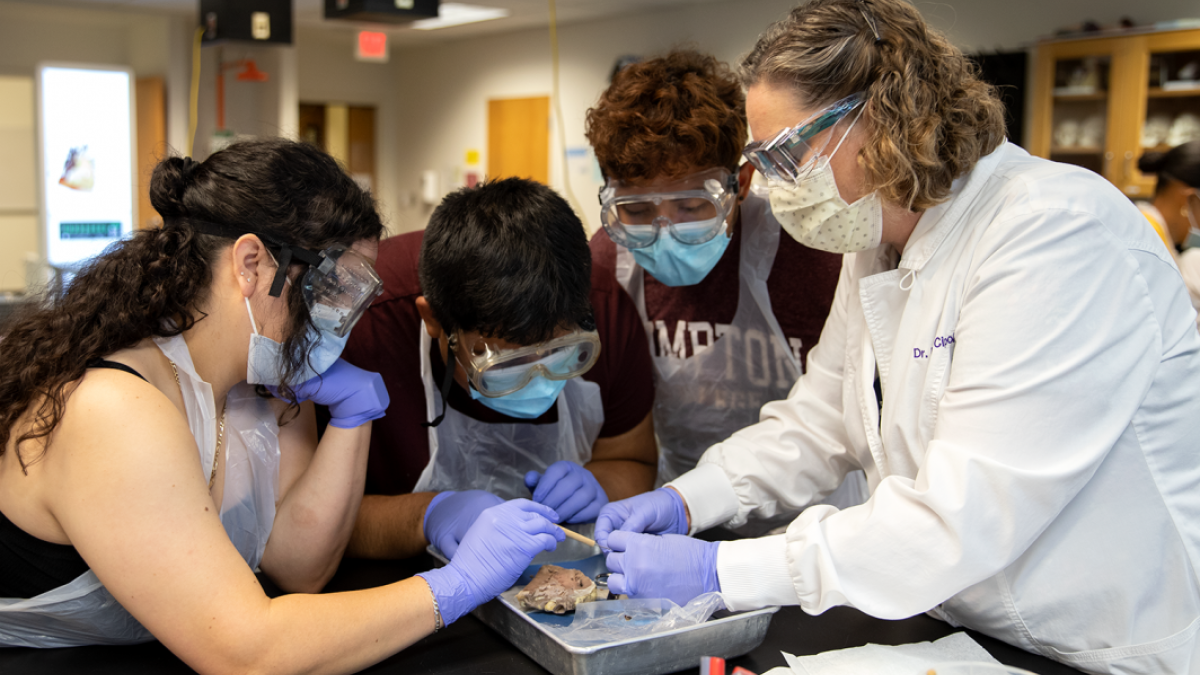
Compton College students dissect a sheep's heart during an anatomy lesson with New College Instructor Karen Cipolla. Photo by Emily Balli
Since 2018, Arizona State University’s New College of Interdisciplinary Arts and Sciences has hosted hundreds of kids and teens at the West campus for SummerUp Camps — day and weeklong camps offering hands-on opportunities to explore everything from crime scene investigation and coding to sports, cybersecurity and more.
This summer, in an effort to expand the reach of SummerUp Camps, New College also hosted community college students from Compton College for a special STEM and college success camp.
Compton College is a community college in Compton, California, that offers courses to the communities of Compton, Lynwood and Paramount. Last year, Compton College served over 6,600 students.
“Many of our students come to Compton College with limited financial means,” said Lauren Davis Sosenko, the manager of research and planning at Compton College. “We are a beacon of hope and light in our community to provide educational opportunities for our students both to either get a living wage job or to transfer to a university.”
A majority of Compton College students are from underrepresented groups, with 63% of students identifying as Hispanic or Latino and 22% identifying as Black.
As a Hispanic-Serving Institution (HSI), Compton College President Keith Curry wanted to partner with ASU because it is known not only for its innovation, but also for its commitment to increasing the diversity of its student body.
ASU was recently named an HSI by the U.S. Department of Education, in recognition of the university’s efforts to more holistically serve its community through a range of financial and academic support programs for current ASU students, K–12 outreach programs that strengthen the pipeline to college, and resources for the broader community.
The 27 participants of the Compton College SummerUp Camp ranged in age from 18 to 52 years old, and were selected from a pool of over 160 applicants. Many of them had never visited a university campus before, or are the first in their family to attend college.
“This camp was the first of its kind for the West campus, so we were eager to give students a taste of university life while also creating a sense of belonging,” said Carolyn Starr, director of community events and experiential programming at the West campus. “Because so many of the participants were first-gen, we really wanted to help them to envision a future where graduating from a four-year university is within reach.”
From June 12–21, the participants took science-, technology-, engineering- and mathematics-related courses taught by New College faculty, ranging in topics from anatomy, ecology and coding to geology and forensic science.
The students learned about black widow behavior; explored the basics of forensic science through fingerprint analysis; experimented with computer coding by utilizing PythonPython is a high-level, interpreted, general-purpose computer programming language.; got to know human anatomy by dissecting a sheep’s heart; and gained a better understanding of rock formations.
They also participated in an ASU 101 course where they learned the ins and outs of transferring to a university, the Western Undergraduate Exchange program and other college success tips.
For first-generation student Cristian Mendoza, a Compton College student studying chemistry, physics, mathematics and automotive collision repair and paint, the camp enabled him to get out of his comfort zone.
Mendoza, who aspires to transfer to a university and study forensic science, said he applied for the program not only to try new things, but also to help him build a successful future where he can support his family.
“Growing up, we were of low income,” Mendoza said. “My brother and I grew up struggling every now and then, we grew up with issues my sister has never met. We’re thankful for that. … That’s something that we want to provide. Much like we’re providing for our sister, I want to provide for the future of not only my children, but their children’s children, and so on.”
Although he’s been able to pursue many of his interests at Compton College, through SummerUp, Mendoza was exposed to new ideas and subject matter he had never encountered previously.
“These were courses that I wouldn’t have thought of taking. … My favorite class was the forensic science class,” Mendoza said. “I liked the DNA gathering aspect of it and being able to know how to record the data, how to find what you’re looking for, how to piece things together and being able to analyze it thoroughly while working together with my peers.”
For the extent of the camp, participants dined and stayed on campus. By sharing meals and rooming together, the students formed new friendships and found a sense of camaraderie with their peers.
Victoria Torres, a first-generation student who studies engineering at Compton College, said her favorite part of the experience was living on campus.
“In the dorm, I was able to meet new friends and bond with women who have the same goals as me, which is to continue my education,” Torres said. “Education is power. And power can help change the world for others who are not as fortunate as we are.”
On the weekend, participants visited northern Arizona, where they got to see the geology they studied firsthand at the Grand Canyon and experience the history of Arizona by riding the Verde Canyon Railroad.
The camp concluded with a final presentation where students shared what they learned from the experience.
Moving forward, those involved look forward to continuing this partnership and expanding it to serve even more students.
“New College is excited to continue working with Compton College to prepare more than 30 students to participate in SummerUp next year,” Starr said. “We have learned so much from this first group of students, and it was awesome seeing them grow over the course of one week. We can’t wait to create even more meaningful experiences for our students in the years to come.”
More Science and technology

Will this antibiotic work? ASU scientists develop rapid bacterial tests
Bacteria multiply at an astonishing rate, sometimes doubling in number in under four minutes. Imagine a doctor faced with a…

ASU researcher part of team discovering ways to fight drug-resistant bacteria
A new study published in the Science Advances journal featuring Arizona State University researchers has found…

ASU student researchers get early, hands-on experience in engineering research
Using computer science to aid endangered species reintroduction, enhance software engineering education and improve semiconductor…
